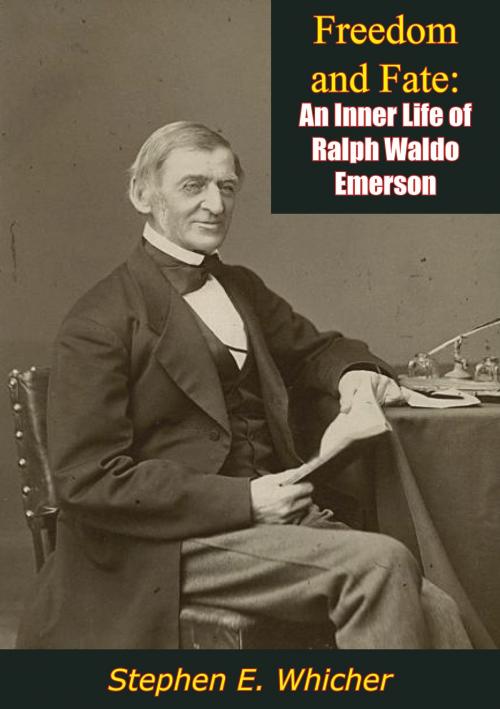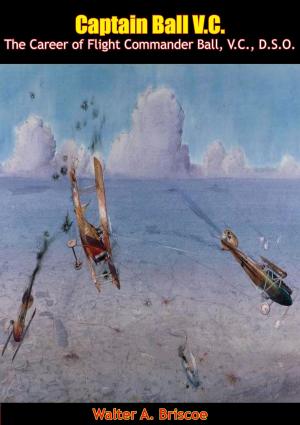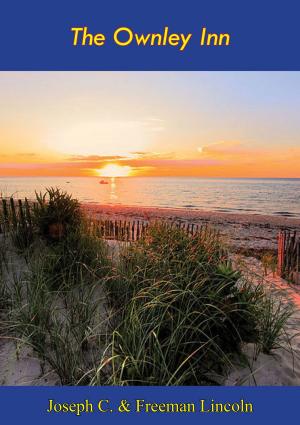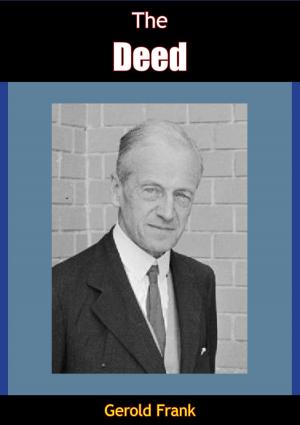Freedom and Fate
An Inner Life of Ralph Waldo Emerson
Nonfiction, History, World History, Americas, United States, Fiction & Literature, Action Suspense| Author: | Stephen E. Whicher | ISBN: | 9781787204324 |
| Publisher: | Valmy Publishing | Publication: | April 7, 2017 |
| Imprint: | Valmy Publishing | Language: | English |
| Author: | Stephen E. Whicher |
| ISBN: | 9781787204324 |
| Publisher: | Valmy Publishing |
| Publication: | April 7, 2017 |
| Imprint: | Valmy Publishing |
| Language: | English |
First published in 1953, Freedom and Fate: An Inner Life of Ralph Waldo Emerson is widely recognized to be the most illuminating of commentaries on Emerson’s thought.
“EMERSON enjoyed, as he wished, an original relation to the universe, one which, like all living relationships, developed and altered with time. Throughout his life he followed the advice of the poet who speaks at the end of Nature: ‘Build therefore your own world.’ His different insights are so many rays of organization thrown out by the exploring soul, in the words of Bacon he cited so often, to conform the shows of things to the desires of the mind.
“As his mind was complex and many-sided, so was the world it built. His greatest gift was his ability to endure the push and pull of contrary directions in his thought without a premature reaching out after conclusions that would do violence to his whole nature. Typically, he came to terms with conflicts as they developed among his truths by dramatizing them, by giving their opposition full play on the stage of his work. Consequently, his writings, and particularly his journals, record a genuine drama of ideas, a still little-known story that adds a new dimension of interest to his thought. This book is intended to ‘produce’ that drama. It traces Emerson’s surprisingly eventful voyage in the world of the mind.”
First published in 1953, Freedom and Fate: An Inner Life of Ralph Waldo Emerson is widely recognized to be the most illuminating of commentaries on Emerson’s thought.
“EMERSON enjoyed, as he wished, an original relation to the universe, one which, like all living relationships, developed and altered with time. Throughout his life he followed the advice of the poet who speaks at the end of Nature: ‘Build therefore your own world.’ His different insights are so many rays of organization thrown out by the exploring soul, in the words of Bacon he cited so often, to conform the shows of things to the desires of the mind.
“As his mind was complex and many-sided, so was the world it built. His greatest gift was his ability to endure the push and pull of contrary directions in his thought without a premature reaching out after conclusions that would do violence to his whole nature. Typically, he came to terms with conflicts as they developed among his truths by dramatizing them, by giving their opposition full play on the stage of his work. Consequently, his writings, and particularly his journals, record a genuine drama of ideas, a still little-known story that adds a new dimension of interest to his thought. This book is intended to ‘produce’ that drama. It traces Emerson’s surprisingly eventful voyage in the world of the mind.”















